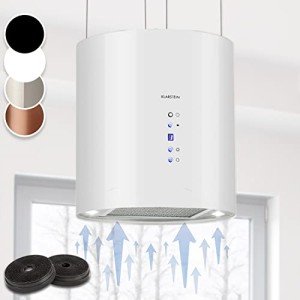10 Facts About Island Hob That Will Instantly Put You In A Good Mood
ліёл¬ё
The Island Vent Hood: A Comprehensive Guide to Choosing and Installing the Perfect Kitchen Feature
In modern kitchen style, the island vent hood has actually ended up being an important focal point, seamlessly integrating performance with aesthetic appeal. With the increase of open-concept living spaces, where kitchens are incorporated with dining and living locations, the importance of a well-designed ventilation system has ended up being vital. This short article explores what an island vent hood is, the different types readily available, crucial features to think about, installation pointers, and FAQs surrounding this essential kitchen part.
What is an Island Vent Hood?
An island vent hood is a kitchen ventilation system developed to be installed above an island cooktop or range. Unlike conventional wall-mounted hoods, island extractor hoods hoods are suspended from the ceiling, supplying a clear view of the cooking location while effectively getting rid of smoke, steam, and odors from the kitchen island extractor. This makes island hoods an attractive option for open designs while making sure a tidy and comfy cooking environment.
Kinds Of Island Vent Hoods
When choosing an island vent hood, it is crucial to understand the different types available in the market. Here are the main categories:
| Type | Description |
|---|---|
| Ducted | Ventilation is directed outside, offering the very best air quality by expelling air and odors. |
| Ductless | Uses filters to clean the air and recirculate it back into the kitchen; much easier to install. |
| Convertible | Can run in both ducted and ductless modes, providing versatility in installation. |
| Under-Cabinet | Installed under kitchen cabinetry; generally lower output, ideal for smaller sized kitchen layouts. |
Key Features to Consider
Selecting the right island vent hood involves a number of crucial elements. Here are the necessary features to think about:
- Size: The hood must be at least as wide as the cooktop. Ideally, it needs to extend 6 inches on either side for ideal performance.
- CFM Rating: The Cubic Feet per Minute (CFM) rating suggests the hood's ventilation power. Greater CFM is required for heavy cooking, while lower CFM might suffice for lighter use.
- Sound Level: Measured in sones, a lower sone score suggests a quieter operation. A peaceful fan is especially essential in open-concept spaces.
- Lighting: Many island hoods come geared up with built-in lighting. LED lights are popular for their energy performance and durability.
- Style: Island vent hoods been available in numerous designs, including modern, conventional, and commercial. Pick a hood that complements the overall kitchen visual.
Installation Tips
Setting up an island vent hood can be a complicated process. Here are some important suggestions to facilitate the setup:
- Check regional codes and regulations to guarantee compliance with installation height and electrical requirements.
- Determine the hood's height: The top of the hood must be 30 to 36 inches above the cooking surface area, depending upon the manufacturer's suggestions.
- Secure the mounting bracket: Ensure that the installing bracket is appropriately anchored to the ceiling to support the weight of the hood and motors.
- Ductwork factors to consider: If using a ducted system, ensure appropriate duct size and design for optimum air flow. Prevent sharp bends in ducting, which can impede air motion.
- Electrical setup: Ensure that the electrical connections fulfill your hood's power requirements, and consider working with a licensed electrical expert for complex setups.
Expense Considerations
The expense of an Exclusive Island Range Hood vent hood can range substantially depending upon features, materials, and brand name. Below is a breakdown of prospective costs related to purchasing and setting up these hoods:
| Cost Element | Approximated Range |
|---|---|
| Basic Models | вӮӨ 300 - вӮӨ 600 |
| Mid-range Models | вӮӨ 600 - вӮӨ 1,200 |
| High-End Models | вӮӨ 1,200 - вӮӨ 3,000+ |
| Installation Costs | вӮӨ 200 - вӮӨ 500 |
Frequently Asked Questions
1. How often need to I clean my island cooker hoods vent hood?Regular cleansing is advised, with deep cleansing a minimum of once a month, especially if you cook frequently. 2. Can I install an island vent
hood myself?While it is possible, expert
setup is suggested for safety and optimum efficiency, especially with ductwork and electrical connections. 3. Are ductless island hoods effective?Ductless hoods can effectively filter
smoke and smells, however they may not be as effective as ducted models. They require routine filter replacements and upkeep. 4. What type of maintenance does an island vent hood require?Regular cleaning of filters, lights, and hoods, together with looking for any wear and tear on motors or ductwork is important for preserving performance
. 5. What kind of filters must I use?Most island vent hoods use aluminum or charcoal filters. Aluminum filters are multiple-use, while charcoal filters need to be replaced
occasionally. The island vent hood is an important component of a modern kitchen, supplying exhaustion of undesirable smells and making a striking design declaration. Selecting the right type, comprehending vital
functions, and sticking to proper installation methods will ensure optimal performance and longevity of this kitchen appliance. Whether you are a skilled chef or a periodic home cook, the right island island vent hood vent hood can considerably improve your cooking experience. By following the standards and factors to consider outlined in this post, homeowners can make informed decisions and take pleasure in a cleaner and more enjoyable cooking environment.

лҢ“кёҖлӘ©лЎқ0
лҢ“кёҖ нҸ¬мқёнҠё м•ҲлӮҙ